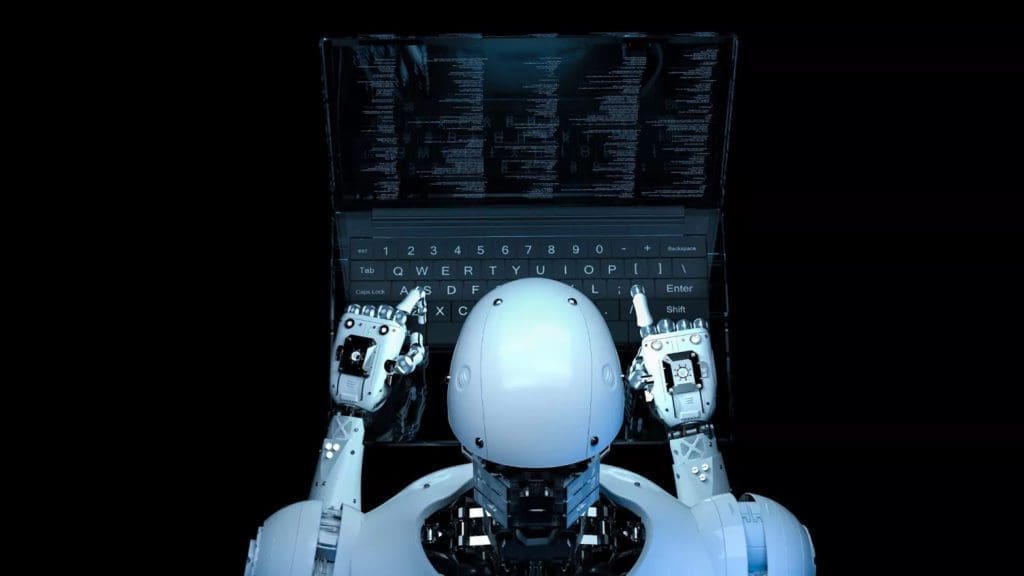The AI revolution is here, and it’s changing the way marketers do business. AI-powered bots, like ChatGPD, are taking over conversations with customers more efficiently and cost-effectively. AI can automate mundane tasks that would otherwise take up valuable time for marketing teams. It can also help them focus on what matters most: creating high customer engagement. But does this AI technology mean the end of human interaction for marketers? Nope!
ChatGPD is designed to enhance customer service operations rather than replace them. AI provides automated responses tailored to customer needs without having to process human requests manually. This frees up time for marketing teams to give one-on-one attention to complex inquiries and build customer relationships. AI also helps marketers identify and understand customer behavior quickly. This allows them to create more tailored campaigns for better customer engagement.
Artificial Intelligence is changing the marketing landscape, but it doesn’t mean that human interaction isn’t still necessary. AI can provide a lot of insights and automation. But when it comes to customer service and building customer relationships, humans are still superior at creating meaningful customer interactions. AI may be able to replace some of the mundane tasks in customer service operations, but it will never return the value of human connection.

Will AI replace marketing content developers?
While AI has significantly advanced in generating content, it is unlikely to replace human marketing content developers completely. AI can undoubtedly assist with tasks such as data analysis, identifying trends and patterns, and generating content. However, creativity and the ability to connect with audiences on an emotional level are still areas where humans excel. In addition, successful marketing campaigns often require a deep understanding of the brand’s values, mission and voice – something that AI may not be able to comprehend fully. Therefore, it is more likely that AI will continue to augment human efforts rather than replace them entirely.
Can AI get the essence of your brand?
AI can help identify some aspects of a brand, such as its target audience and messaging, through data analysis and pattern recognition. However, the essence of a brand goes beyond just the surface-level attributes. It includes intangible elements such as the brand’s personality, values, and emotional appeal – things that are difficult to quantify or define in a way that an AI model can fully understand.
Furthermore, branding is often about creating an emotional connection with consumers, which requires a deeper understanding of human behavior and psychology than AI can achieve. Therefore, while AI can assist with certain aspects of branding, it is unlikely to fully capture the essence of a brand without human input and perspective.
Can the AI tell stories?
Yes, AI can certainly tell stories. AI models have already been trained to generate creative writing, such as short stories and even novels. However, the quality of these stories may vary widely depending on the sophistication of the AI model and the amount of data it has been trained on. While AI-generated stories may be technically correct and grammatically sound, they may lack the emotional depth and nuance of human experience and perspective.
Furthermore, storytelling is not just about stringing together words coherently – it’s about crafting a narrative that resonates with people on a deeper level. This requires understanding human emotions, cultural context, and the ability to create relatable characters and situations – all areas where humans currently outperform AI. Therefore, while AI can undoubtedly tell stories, it is unlikely to replace human storytellers anytime soon.
Can AI make you feel something?
AI can certainly trigger emotional responses in people, such as surprise, delight, or even fear. For example, AI-powered chatbots and virtual assistants are becoming increasingly adept at mimicking human conversation and providing personalized recommendations based on user data.
However, the emotional impact of AI-generated content may be limited because it lacks human experience and perspective. While AI models can analyze vast amounts of data to identify patterns and make predictions, they do not have the same capacity for empathy or intuition as humans. As a result, people’s emotional connection with AI-generated content is likely to be shallower than they experience with human-created content.
That being said, as AI continues to evolve and become more sophisticated, there may be new opportunities to create emotionally resonant experiences that rival those created by humans.
I see value in AI. But for things like:
- Brainstorming ideas
- Delivering new perspectives on a topic
- Generating social media posts (to a degree)
- Help with research
- Organize thoughts
- Provide feedback on the content
- Offer grammar suggestions
- Help keep you focused on the topic
- Assist in time management

The thing I keep coming back to is the essence of your brand. Your heart and soul of the organization. Successful marketing evokes an emotion. It moves the viewer to feel something and then act upon it. Maybe AI needs to visit Oz with the Tin Man. Till AI has a heart, you are still your best writer.
UPDATE
Here’s a good article on the 7 Disadvantages of Using AI in Digital Marketing. Worth a read. Click here.


